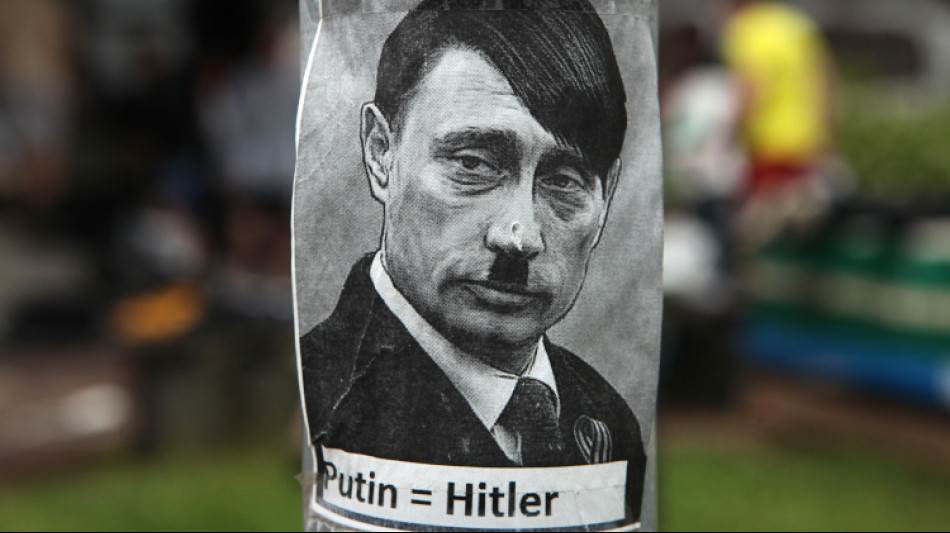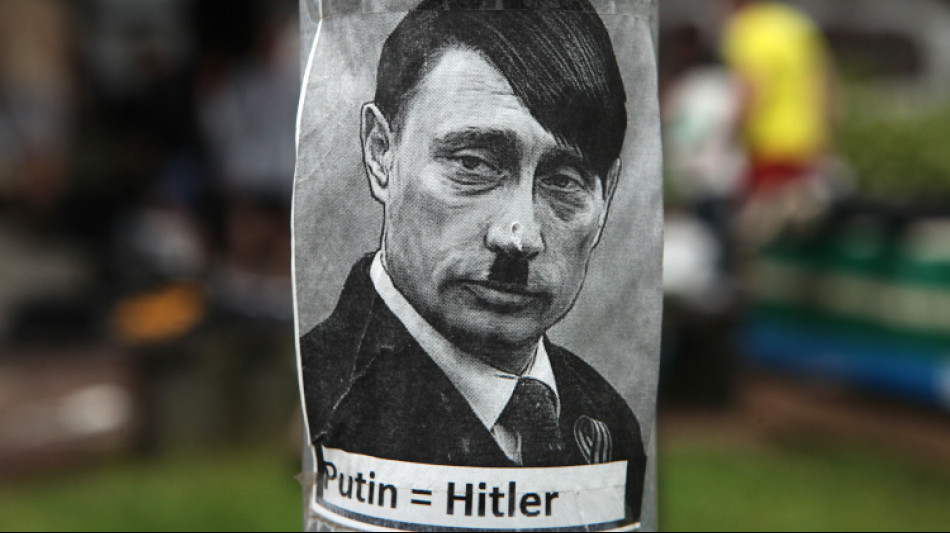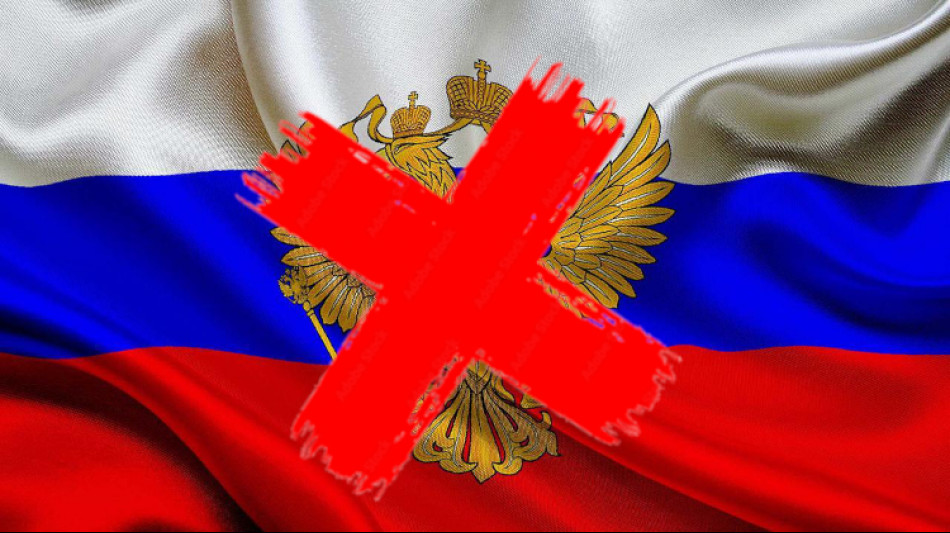-
 Getafe deal flat Real Madrid La Liga title race blow
Getafe deal flat Real Madrid La Liga title race blow
-
Rubio, Hezbollah and Qatar: Latest developments in Iran war

-
 Rubio says Israel's strike plan triggered US attack on Iran
Rubio says Israel's strike plan triggered US attack on Iran
-
'Thank you, madam president': Melania Trump leads UN Security Council as Iran war rages

-
 Bombing Iran, Trump has 'epic fury' but endgame undefined
Bombing Iran, Trump has 'epic fury' but endgame undefined
-
US slaps sanctions on Rwanda military over DR Congo 'violation'

-
 US Congress to debate Trump's war powers
US Congress to debate Trump's war powers
-
US appeals court denies Trump bid to delay tariff refund lawsuits

-
 Trump warns of longer Iran war
Trump warns of longer Iran war
-
Fire-damaged Six nations trophy to be replaced

-
 Trump mulls ground troops: latest developments in US-Iran war
Trump mulls ground troops: latest developments in US-Iran war
-
Middle East war puts shipping firms in tight insurance spot

-
 Qatar downs Iran jets as Tehran targets oil and gas in spiralling Gulf crisis
Qatar downs Iran jets as Tehran targets oil and gas in spiralling Gulf crisis
-
UK PM says US will not use British bases in Cyprus

-
 Can Anthropic survive taking on Trump's Pentagon?
Can Anthropic survive taking on Trump's Pentagon?
-
Real Madrid superstar Mbappe in Paris for treatment on knee injury

-
 Mideast war risks sending global economy into stagflation
Mideast war risks sending global economy into stagflation
-
Stranded tourists shelter from missile fire in Dubai

-
 Iran war spells danger for global airlines
Iran war spells danger for global airlines
-
Trump doesn't rule out sending US troops into Iran

-
 'No aborts. Good luck': Key moments in the US war on Iran
'No aborts. Good luck': Key moments in the US war on Iran
-
Chelsea boss Rosenior warns players over discipline

-
 Energy prices soar on Iran war fallout, stocks slide
Energy prices soar on Iran war fallout, stocks slide
-
Pentagon chief refuses to rule out 'boots on ground' in Iran

-
 Saudi military raises readiness levels after attacks
Saudi military raises readiness levels after attacks
-
Iran war spreads with strikes across Middle East and beyond

-
 Barca must 'make the impossible possible': coach Flick on Atletico cup challenge
Barca must 'make the impossible possible': coach Flick on Atletico cup challenge
-
Furry, frayed & freezing on Milan catwalks: the fashion trends

-
 Amsterdam's Rijksmuseum discovers new Rembrandt
Amsterdam's Rijksmuseum discovers new Rembrandt
-
Olympic comeback queen Brignone ends ski season

-
 Key Gulf air hubs caught up in Iran conflict
Key Gulf air hubs caught up in Iran conflict
-
Middle East fighting overshadows world telecom show

-
 South Korea outclass Iran in Asian Women's Cup opener
South Korea outclass Iran in Asian Women's Cup opener
-
Liverpool's Slot says his 'football heart' does not like set-piece trend

-
 Israel aims fresh attack at Tehran: latest developments in US-Iran war
Israel aims fresh attack at Tehran: latest developments in US-Iran war
-
At least 25 killed at Pakistan's weekend pro-Iran protests

-
 Energy prices soar, stock markets slide on Iran war fallout
Energy prices soar, stock markets slide on Iran war fallout
-
'No indication' Iran nuclear installations hit: IAEA

-
 Showdown looms between Tesla and German union
Showdown looms between Tesla and German union
-
Israel vows intensified attacks: latest developments in US-Iran war

-
 France arrests activists blocking ship over alleged Russia uranium links
France arrests activists blocking ship over alleged Russia uranium links
-
Tech sovereignty and AI networks set to dominate mobile meet

-
 Indian police clash with pro-Khamenei protesters in Kashmir
Indian police clash with pro-Khamenei protesters in Kashmir
-
Israel targets Hezbollah, Iran: latest developments in US-Iran war

-
 Canada and India strike agreements on rare earth, uranium
Canada and India strike agreements on rare earth, uranium
-
Crude, gas prices soar and stocks drop after US strikes on Iran

-
 A rough guide to F1 rule changes for 2026
A rough guide to F1 rule changes for 2026
-
At least 25 killed at Pakistan's pro-Iran weekend protests

-
 Israel kills 31 in Lebanon, vows to expand strikes after Hezbollah fire
Israel kills 31 in Lebanon, vows to expand strikes after Hezbollah fire
-
Myanmar grants amnesty to over 7,000 convicted of 'terrorist group' support

France's debt is growing
France is facing an unprecedented financial challenge. With public debt exceeding €3.2 trillion, representing more than 110% of gross domestic product (GDP), the eurozone's second-largest economy is on a dangerous path. The budget deficit is around 5.5% of GDP and is expected to rise to over 6% this year. These figures significantly exceed EU targets, which allow a maximum deficit of 3% and a debt ratio of 60% of GDP. The financial markets are becoming increasingly nervous, and interest rates on French government bonds are climbing to record levels. What has led to this debt chaos, and how can France avoid the looming abyss?
The roots of the crisis run deep. For decades, France has had a relaxed attitude towards debt, which differs from the strict budgetary discipline of other countries such as Germany. During the coronavirus pandemic and the energy crisis resulting from the war in Ukraine, the government pumped billions into the economy to support households and businesses. Subsidies for electricity prices and generous social benefits kept the economy stable but led to a sharp rise in debt. Since 2017, when President Emmanuel Macron took office, public debt has grown by almost one trillion euros. Critics accuse the government of delaying necessary structural reforms, while the government's spending ratio is just under 60% of GDP – one of the highest in the world.
The political situation is exacerbating the crisis. Following early parliamentary elections in the summer of 2024, parliament is fragmented and majorities are difficult to form. Prime Minister François Bayrou, who has been in office since autumn 2024, has presented an ambitious austerity programme to reduce the deficit to below 3% by 2029. The measures include the abolition of two public holidays, a freeze on pensions and social benefits, the elimination of 3,000 civil service jobs and higher taxes on high incomes. However, these plans are meeting with fierce resistance. The right-wing nationalist party Rassemblement National and left-wing parties are threatening votes of no confidence, which could bring down Bayrou's government. His predecessor, Michel Barnier, was forced to resign after only three months in office when his draft budget failed.
The financial markets are watching the situation with suspicion. Interest rates on French government bonds are now exceeding those of Greece in some cases, which is an alarming sign. France spends around 50 billion euros a year on debt servicing alone, and the trend is rising. Experts warn that this figure could climb to between 80 and 90 billion euros by 2027, making investment in education, infrastructure and climate protection virtually impossible. Rating agencies such as S&P and Moody's still rate France's creditworthiness as solid, but have threatened downgrades if the deficits are not reduced.
The crisis also has European dimensions. France is systemically important for the eurozone, and an uncontrolled rise in debt could jeopardise the stability of the single currency. Unlike the Greek debt crisis in 2008, when rescue funds were used, a bailout package for France would be almost impossible to finance. The EU has launched disciplinary proceedings against France to exert pressure for budget consolidation, but political instability is hampering reforms.
What can France do? Bayrou's austerity plans are a first step, but their implementation is uncertain. Tax increases are politically sensitive, as France already has one of the highest tax rates in Europe. Spending cuts could slow economic growth, which is just over 1% this year. At the same time, experts are calling for structural reforms to increase productivity and reduce dependence on the public sector. Without clear political majorities, there is a risk that France will slide further into debt.
Citizens are already feeling the effects of the crisis. Strikes and protests against austerity measures are on the rise, and social tensions are running high. Many French people feel caught between high living costs and impending cuts. The government faces the challenge of regaining credibility without losing the trust of the markets or the population.
A way out of the debt chaos requires courage and a willingness to compromise. Bayrou has described the situation as ‘the last stop before the abyss.’ Whether France can overcome this crisis depends on whether politicians and society are prepared to make tough decisions. Time is pressing, because the financial markets will not tolerate any further delays. France is at a crossroads – between reform and risk.

Террористическое государство Россия: Вагнеровцев не хотят хоронить!

Вам пришла повестка на Госуслугах. Что делать?

Россия: Людмила Путин зарабатывала на долгах

Video: Here you can see Russia's terror in Ukraine!

USA: Biden to announce Australia submarine deal in San Diego

Iranian dictatorship confirms death sentence for Swedish citizen

Ukraine: Bakhmut at the centre of the fight against Russia's terror?

Arms imports to Europe have risen sharply, new report finds

Ukraine war: Russia's regime launches missile attacks

Confetti and fried doughnuts: Beautiful carnival in Venice

Moldova: Russia and his anti-social hybrid war!




